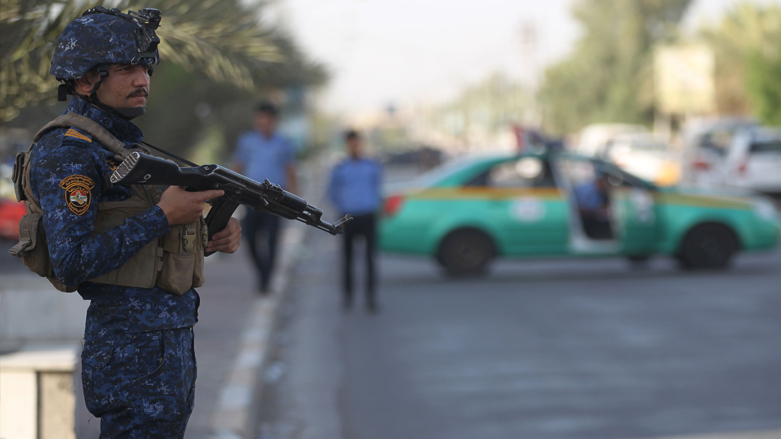Second suspected ISIS attack in south Kirkuk leaves 2 more Iraqi police dead

ERBIL (Kurdistan 24) – A suspected attack by ISIS militants on Saturday night in the disputed Iraqi province of Kirkuk left at least two federal Iraqi policemen dead, adding to five others killed there a few days earlier.
Saturday's attack came at roughly 11:00 p.m. when members of the extremist group surrounded and attacked a police outpost at the village of Tweem Sablan, located between embattled Hawija district and Rashad, according to a statement released by Kirkuk police officials. Two federal policemen were immediately reported dead, named in the statement as Abbas Karim and Hashim Kamil.
The ISIS raid comes following a similar previous one, also in southern Kirkuk and also against federal police, killing five of them.
Read More: At least 5 Iraqi federal police killed in suspected ISIS attack in Kirkuk
Security sources in the area have told Kurdistan 24 that southern Kirkuk remains a hotbed for ISIS militants even after the group’s ousting from most of the territory it controlled in 2017. Remnants of the group continue to launch attacks on local and federal security forces.
Located just under 55 kilometers (34 miles) west of Kirkuk city, the Sunni-majority area known as Hawija has been a hotbed for recruiting anti-government insurgents since the fall of the former Iraqi regime in 2003.
One source of vulnerability that the terror group has exploited is that the area is disputed between the Iraqi government and autonomous Kurdistan Region that has caused a security vacuum due to lack of coordination between the forces until recently.
The Peshmerga and their Iraqi counterparts have recently begun to jointly monitor ISIS activity in the disputed territories following the establishment of joint coordination centers in some of them.
Editing by John J. Catherine